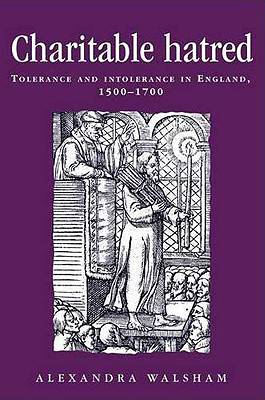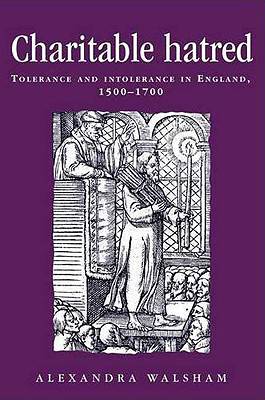
Je cadeautjes zeker op tijd in huis hebben voor de feestdagen? Kom langs in onze winkels en vind het perfecte geschenk!
- Afhalen na 1 uur in een winkel met voorraad
- Gratis thuislevering in België vanaf € 30
- Ruim aanbod met 7 miljoen producten
Je cadeautjes zeker op tijd in huis hebben voor de feestdagen? Kom langs in onze winkels en vind het perfecte geschenk!
- Afhalen na 1 uur in een winkel met voorraad
- Gratis thuislevering in België vanaf € 30
- Ruim aanbod met 7 miljoen producten
Zoeken
€ 61,45
+ 122 punten
Omschrijving
Charitable hatred offers a challenging new perspective on religious tolerance and intolerance in early modern England. Setting aside traditional models charting a linear progress from persecution to toleration, it emphasises instead the complex interplay between these two impulses in the sixteenth and seventeenth centuries. The book examines the intellectual assumptions that underpinned attitudes towards religious minorities and the institutional structures and legal mechanisms by which they were both repressed and accommodated. It also explores the social realities of prejudice and forbearance, hostility and harmony at the level of the neighbourhood and parish. Simultaneously, it surveys the range of ways in which dissenting churches and groups responded and adapted to official and popular intolerance, investigating how the experience of suffering helped to forge sectarian identities. In analysing the consequences of the advancing pluralism of English society in the wake of the Reformation, this study illuminates the cultural processes that shaped and complicated the conditions of coexistence before and after the Act of Toleration of 1689.
Specificaties
Betrokkenen
- Auteur(s):
- Uitgeverij:
Inhoud
- Aantal bladzijden:
- 388
- Taal:
- Engels
- Reeks:
Eigenschappen
- Productcode (EAN):
- 9780719052408
- Verschijningsdatum:
- 16/09/2008
- Uitvoering:
- Paperback
- Formaat:
- Trade paperback (VS)
- Afmetingen:
- 156 mm x 234 mm
- Gewicht:
- 535 g

Alleen bij Standaard Boekhandel
+ 122 punten op je klantenkaart van Standaard Boekhandel
Beoordelingen
We publiceren alleen reviews die voldoen aan de voorwaarden voor reviews. Bekijk onze voorwaarden voor reviews.









